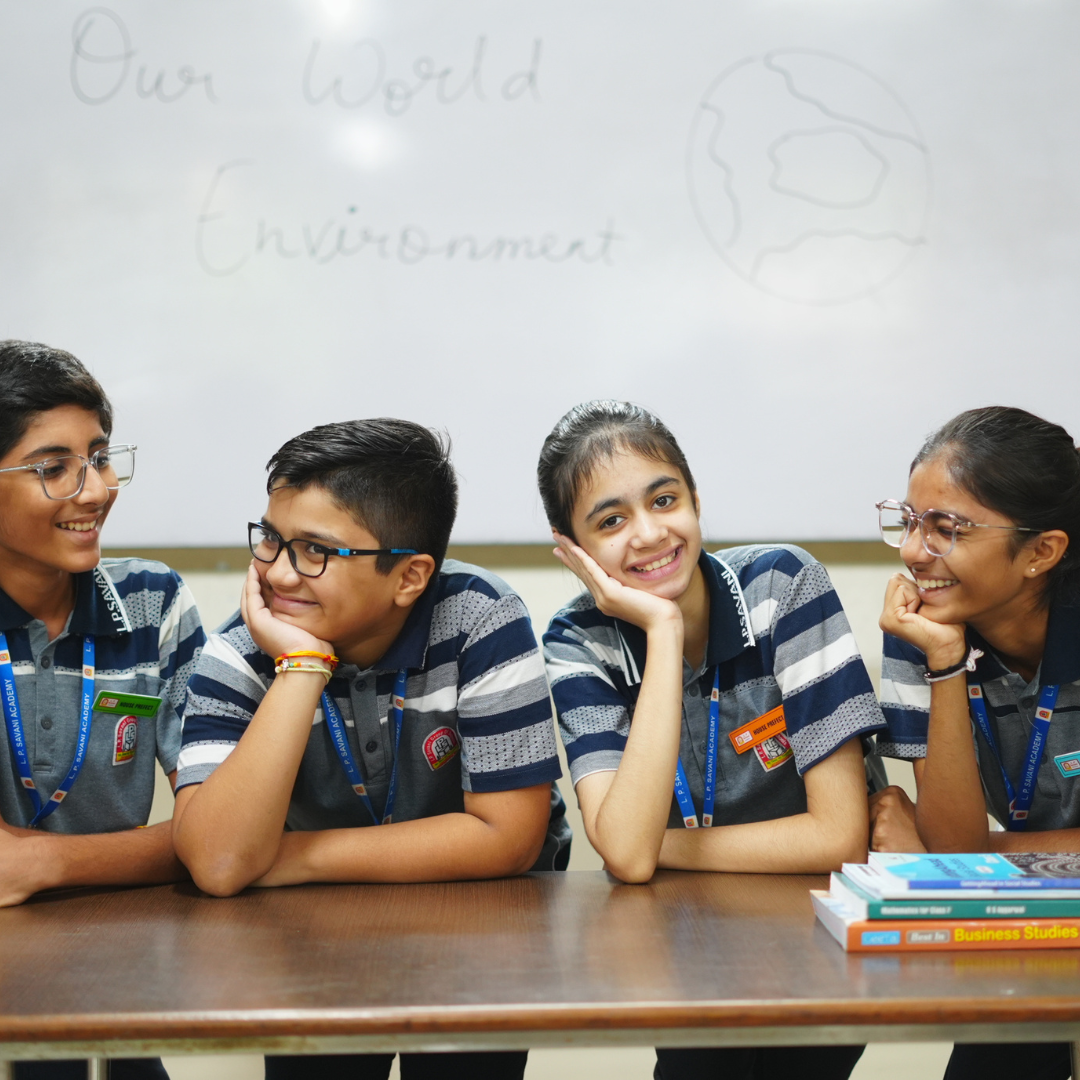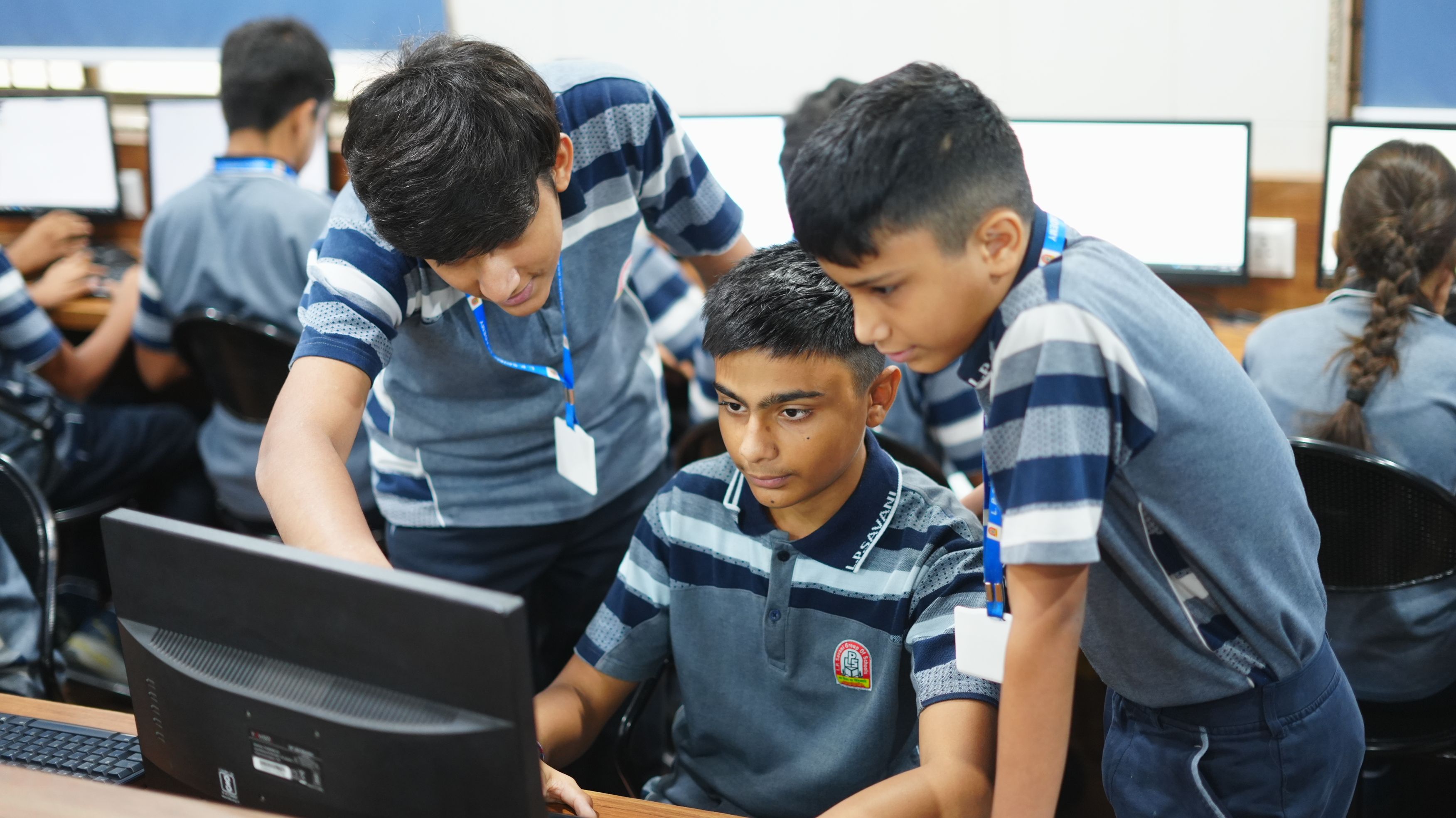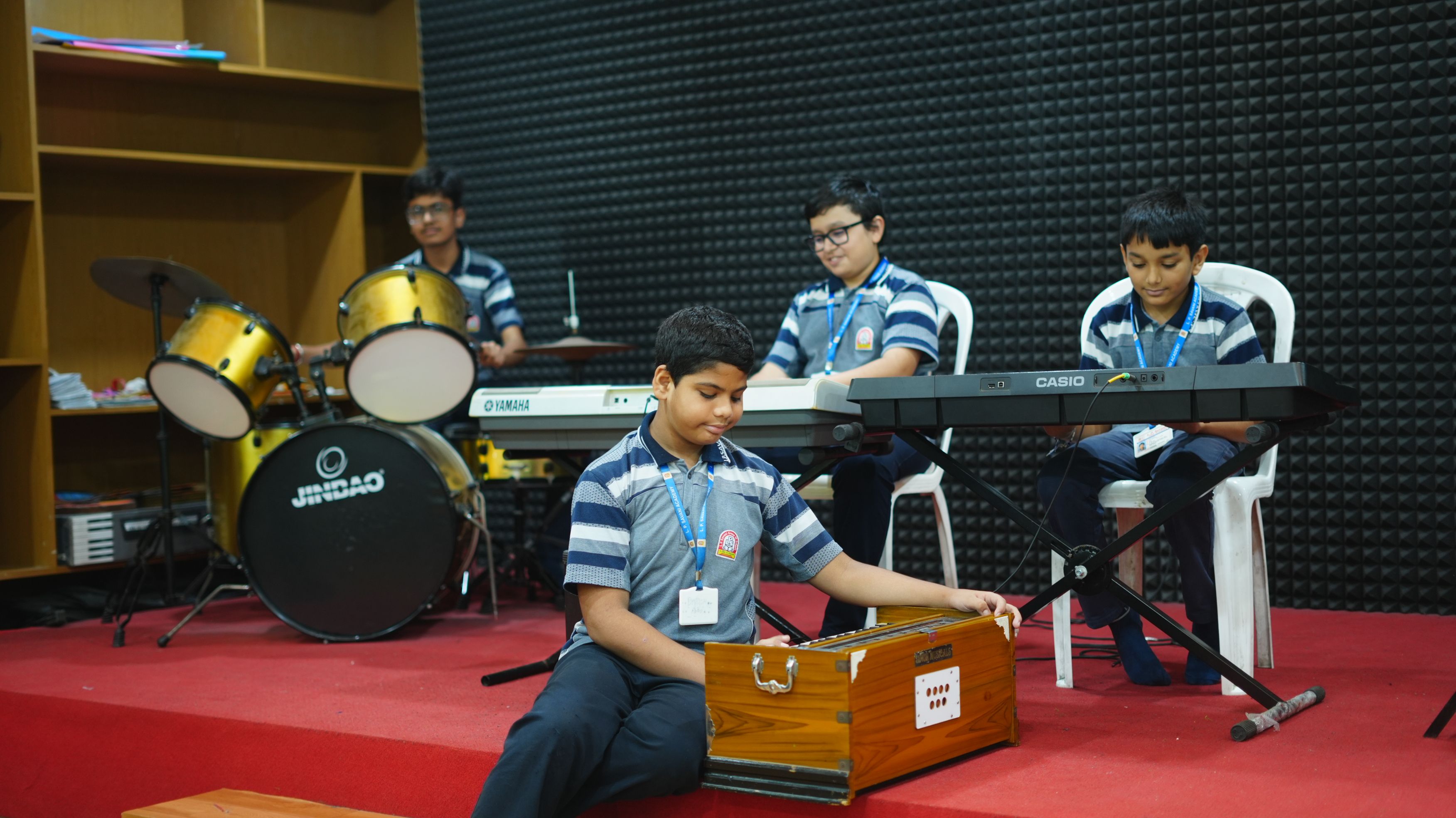

Middle Stage (Ages 11 to 14 | Duration: 3 Years)
The Middle Stage of education is a vital turning point in every child’s learning journey. Spanning three years, this stage caters to students aged 11 to 14 years, covering Classes 6, 7, and 8. It is at this stage that children begin to move beyond the basics of foundational learning and preparatory exploration into a world of critical thinking, deeper knowledge, and subject-specific understanding. It marks the phase when a child is ready to engage with abstract concepts, structured academic disciplines, and more independent learning.
At this level, the curriculum is carefully designed to expand intellectual horizons. Students are introduced to the core disciplines of mathematics, science, social sciences, languages, humanities, and the arts, with greater depth and rigor. Unlike earlier stages, where learning was largely play and activity-driven, the Middle Stage emphasizes conceptual clarity. The focus is not just on absorbing information but on truly understanding ideas, solving problems, analyzing situations, and thinking critically. For example, in science, children are not only taught theories but are also encouraged to experiment, question, and discover patterns through hands-on exploration. In mathematics, emphasis is laid on logic, reasoning, and problem-solving rather than memorization.
This is also the phase where experiential learning becomes central to pedagogy. Classrooms turn into laboratories of thought and creativity, where lessons are reinforced through experiments, projects, role-play, case studies, and collaborative activities. Instead of passively receiving knowledge, children learn to engage with it, question it, and apply it to real-life contexts. This style of learning ensures that education becomes meaningful, practical, and deeply connected to the world around them.

The arts, humanities, and social sciences are also given equal importance, nurturing balance and holistic development. Through history, civics, and geography, children learn about their cultural roots, civic responsibilities, and the world at large. Through literature and language, they sharpen communication, empathy, and imagination. Meanwhile, visual and performing arts provide outlets for creativity and expression, ensuring students do not see education as limited to textbooks but as an exploration of human experience.
A major focus of the Middle Stage is the development of critical and analytical skills. Students are taught how to observe carefully, ask questions, analyze situations, compare viewpoints, and develop independent conclusions. Group discussions, debates, and collaborative problem-solving exercises help students express themselves confidently while respecting diverse opinions. This stage, therefore, is not only about learning “what to think” but more importantly about learning “how to think.”
The Middle Stage is also when vocational education is introduced, in alignment with the NEP’s vision of preparing children for the practical world ahead. Students are exposed to basic skills and vocational streams that connect academics with everyday life. Whether through simple craft, basic technology, entrepreneurship concepts, or hands-on technical exposure, children begin to see education as preparation for both higher studies and the real world of work.

Physical education continues to play an important role during this stage, ensuring that health, fitness, and teamwork remain integral to development. Sports, yoga, and structured physical activities teach discipline, perseverance, and cooperation—qualities that are essential not just in school but in life.
Perhaps one of the most important transformations in the Middle Stage is the shift towards independence in learning. Teachers act as mentors and guides, encouraging students to take responsibility for their own progress. Homework, research projects, and independent assignments are designed not just as tasks but as opportunities for children to develop self-discipline, time management, and accountability.
Technology also plays a greater role at this stage. Digital tools, e-learning resources, and computer-based activities are often integrated into lessons, preparing children for the digital era while also making learning interactive and engaging.

By the end of the Middle Stage, children are expected to have achieved greater clarity in academic concepts, strong problem-solving abilities, and the ability to think critically and independently. They develop a broader understanding of subjects, an appreciation for diversity in knowledge, and a readiness to take on the challenges of secondary education. Importantly, they are also introduced to vocational streams and real-life applications, helping them see education as a preparation for life, not just examinations.
In short, the Middle Stage is about strengthening the mind and broadening the horizon. It blends academics with life skills, theory with practice, and individuality with teamwork. It is in this stage that children begin to truly discover who they are as learners, thinkers, and individuals, preparing them for the challenges and opportunities of the Secondary Stage and beyond.